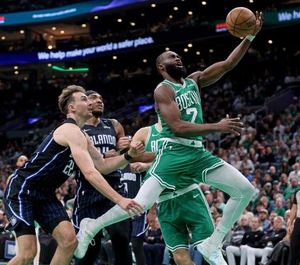The upcoming release of Assassin's Creed Shadows is shrouded in controversy, igniting sharply divided reactions among gamers. With its imminent launch, excitement was intended to reach high levels, yet recent events have sparked significant backlash, particularly from fans concerned about cultural representation and quality of voice acting.
At the center of the storm is Louis-San, a YouTuber and part-time voice actor, who provided voice work for a secondary character within Shadows. Unfortunately, his performance has drawn criticism for its perceived lack of quality. Many fans took to social media, expressing discontent with his contribution. One user even remarked, “Is Louis-San’s dubbing for the latest Assassin’s Creed a joke?” acknowledging the chorus of disapproval surrounding the game.
Louis-San responded to the backlash during his streaming sessions on February 2, 2025. He openly admitted the feedback on his performance hurt and explained how he wanted to be part of the project. He mentioned, “I accepted to lend my voice to the character for free, without realizing how the direction might affect the outcome.” He elaborated on instructions he received from the casting director, who suggested he mimic the English vocalization style, which led to what some perceived as overacting. Not one to deflect blame, Louis-San candidly stated, “It’s rubbish. Own up to it. Laugh about it. Make it a meme,” illustrating his willingness to acknowledge flaws and find humor amid criticism.
On the other side of the ocean, another wave of dissatisfaction brewed within the Japanese gaming community. Japanese YouTuber Shohei Kondo posted gameplay footage capturing scenes where characters destroy cultural sites, which ignited outrage. He tweeted, “Wake up, Ubisoft ‘defenders,’ and hear our voice! What kind of Assassin’s Creed game destroys actual religious sites? The Japanese culture is consumed, but not respected. Here is what it looks like!” His words resonate deeply with many fans, who feel gaming companies often appropriate cultural elements without sufficient respect or sensitivity.
The resulting online discourse has unveiled broader concerns surrounding Ubisoft’s engagement with Japanese themes. Some fans argue for artistic freedom within video games, stating players control the experience. They remind detractors of similar contexts found within past Assassin's Creed installments, where the narrative engaged with historical figures such as the Pope and other sensitive topics without causing uproar.
Yet, Kondo's perspective has struck a chord, prompting intense discussions across platforms. Some passionate fans took his remarks as validation of their own brewing concerns. Responding to the video, others pointed out the richness of Japanese history and culture, demanding any portrayal via Shadows respect the nuances involved. Many agree this isn’t just about gameplay—it's about representation, identity, and respect.
Ubisoft's reputation hangs by a thread as these social media incidents mount. Despite their intention to present Assassin's Creed Shadows as another exciting chapter for the franchise, reactions reveal forces at play far beyond mere gameplay mechanics or voice choices.
The studio, embroiled in economic hardships, has also had to navigate several release delays and artistic direction qualms surrounding Shadows. They issued public apologies for specific decisions made concerning the game to allay fears from the Japanese audience. Still, with the storm brewing online, the release date for March 20, 2025, appears more precarious than ever.
While Ubisoft seems to have made haste to rectify their relationship with fans, the ground realities on social media tell another story. Louis-San's situation serves as just one thread within the fabric of controversy as longtime fans continue to process their expectations amid announced changes.
Moving forward, part of the challenge rests with Ubisoft as they need to improve not only their message but also the act of listening to cultural stakeholders. Ignoring such critiques could prove detrimental not only to this installment but also to the wider reputation of the long-standing franchise.
With looming competition from other nearby titles such as Sucker Punch's Ghost of Yōtei, Assassin's Creed Shadows faces mounting pressure to align closely with the expectations of its diverse audience whose sensitivities deserve acknowledgment.
Could this online uproar signal the need for change within the gaming industry itself? Should game developers reassess their approach to cross-cultural storytelling, recognizing the potency of player voices? What remains to be seen is if Ubisoft can effectively quell the flames of this controversy as anticipation for Shadows continues to build. Fans are left debating—will the game respect their expectations, or will it be another chapter marred by missteps?



